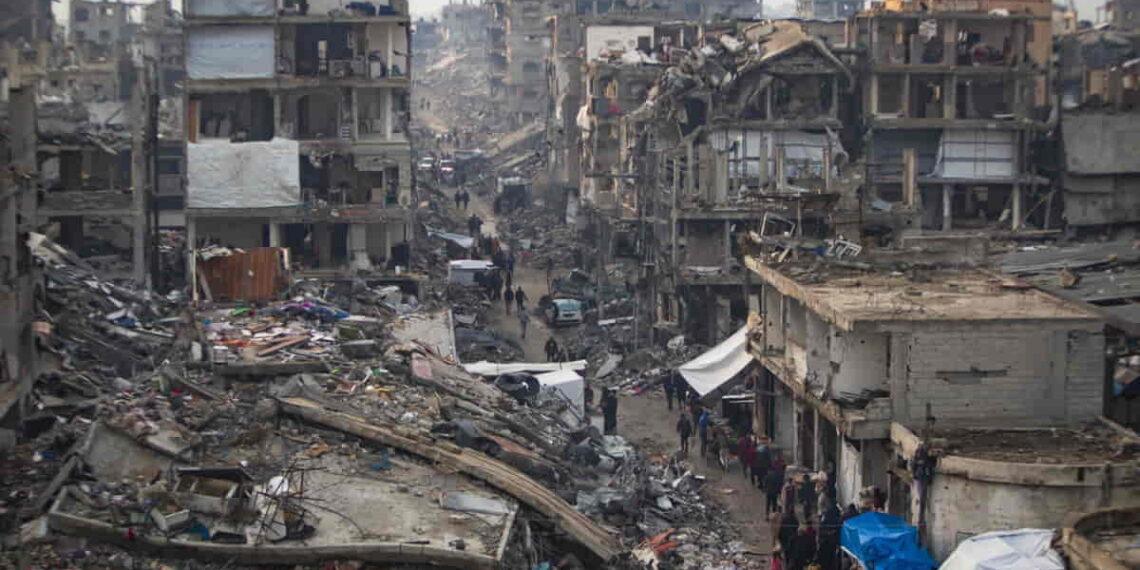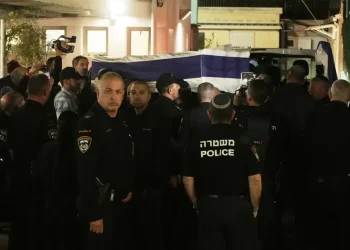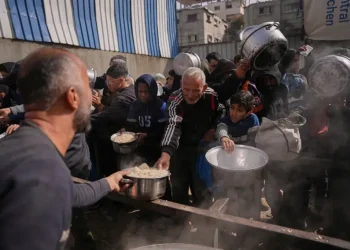Netanyahu Threatens to Resume Fighting in Gaza if Hostages Are Not Released by Saturday
Israeli Prime Minister Benjamin Netanyahu has warned that Israel will withdraw from the Gaza ceasefire and resume military operations against Hamas if the militant group does not release more hostages by Saturday. Netanyahu has ordered Israeli forces to prepare for renewed combat should Hamas fail to comply.
Hamas Accuses Israel of Violating Ceasefire Terms
Hamas announced on Monday—and reiterated on Tuesday—that it would delay releasing three additional hostages, accusing Israel of breaching the ceasefire agreement. The group claims Israel has failed to permit the agreed-upon amount of humanitarian aid, including tents and supplies, into Gaza.
Trump Casts Doubt on Ceasefire’s Durability
U.S. President Donald Trump, after meeting with Jordan’s King Abdullah II at the White House on Tuesday, questioned whether Hamas would meet the deadline to release the remaining hostages.
“I don’t think they’re going to make the deadline, personally,” Trump said. “They want to play tough guy. We’ll see how tough they are.”
Since the ceasefire began, Hamas has released 21 hostages in five separate exchanges for over 730 Palestinian prisoners. The next phase of the agreement calls for the release of all remaining hostages and an indefinite extension of the ceasefire. However, Trump’s remarks about the hostage releases and the future of Gaza have heightened tensions.
Netanyahu’s Stance and Military Readiness
It remains unclear whether Netanyahu’s ultimatum applies only to the three hostages set for release on Saturday or all remaining captives. His office, however, welcomed Trump’s firm stance.
An anonymous Israeli official stated that Israel is aligned with Trump’s position: all hostages must be freed by Saturday. In response, Netanyahu has ordered the Israeli military to mobilize troops around the Gaza Strip, preparing for possible scenarios should the ceasefire collapse.
Hamas Dismisses Trump’s Threats
Trump has insisted that Israel should cancel the ceasefire altogether if all 70 remaining hostages are not released by Saturday. Hamas, however, has dismissed his ultimatum, arguing that Israel has already violated the agreement.
“Trump must remember there is an agreement that must be respected by both parties. This is the only way to bring back prisoners,” Hamas spokesman Sami Abu Zuhri stated Tuesday. “The language of threats has no value; it only complicates matters.”
Hamas later condemned Trump’s remarks, accusing him of advocating for “ethnic cleansing” and attempting to “liquidate the Palestinian cause.” While the group reaffirmed its commitment to the ceasefire, it did not directly address its decision to pause hostage releases.
Jordan Faces Pressure Amid U.S. Middle East Strategy
Trump met with King Abdullah II in Washington, where he intensified pressure on Jordan to accept refugees from Gaza—potentially as a permanent resettlement plan.
“We’re not going to buy anything. We’re going to have it,” Trump said about U.S. influence over Gaza, as King Abdullah stood beside him.
When pressed about Trump’s vision for the Middle East, the Jordanian king did not provide specific comments. He also avoided responding to suggestions that Jordan could take in a large number of Palestinian refugees. However, he did state that Jordan is willing to accept up to 2,000 seriously ill children from Gaza for medical treatment.
The Uncertain Future of the Ceasefire
Under the ceasefire’s first phase, Hamas agreed to release 33 hostages taken during its October 7, 2023, attack on Israel, while Israel pledged to free nearly 2,000 Palestinian prisoners. Since January 19, five prisoner swaps have taken place.
If no agreement is reached for the second phase, the war could resume by early March. However, the battlefield dynamics have changed. Hundreds of thousands of Palestinians, initially displaced to southern Gaza, have since returned to their homes, complicating potential Israeli military operations.
With tensions escalating and the ceasefire on the brink of collapse, the coming days will be critical in determining whether negotiations continue or if the conflict reignites.
This article was rewritten by JournosNews.com based on verified reporting from trusted sources. The content has been independently reviewed, fact-checked, and edited for accuracy, neutrality, tone, and global readability in accordance with Google News and AdSense standards.
All opinions, quotes, or statements from contributors, experts, or sourced organizations do not necessarily reflect the views of JournosNews.com. JournosNews.com maintains full editorial independence from any external funders, sponsors, or organizations.
Stay informed with JournosNews.com — your trusted source for verified global reporting and in-depth analysis. Follow us on Google News, BlueSky, and X for real-time updates.













